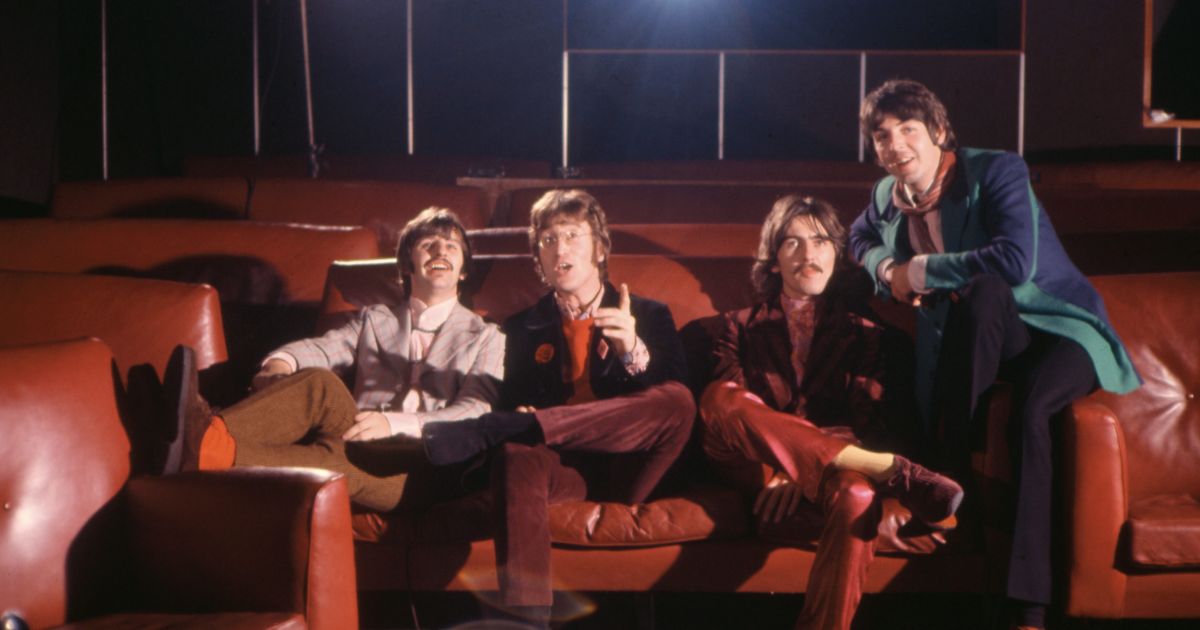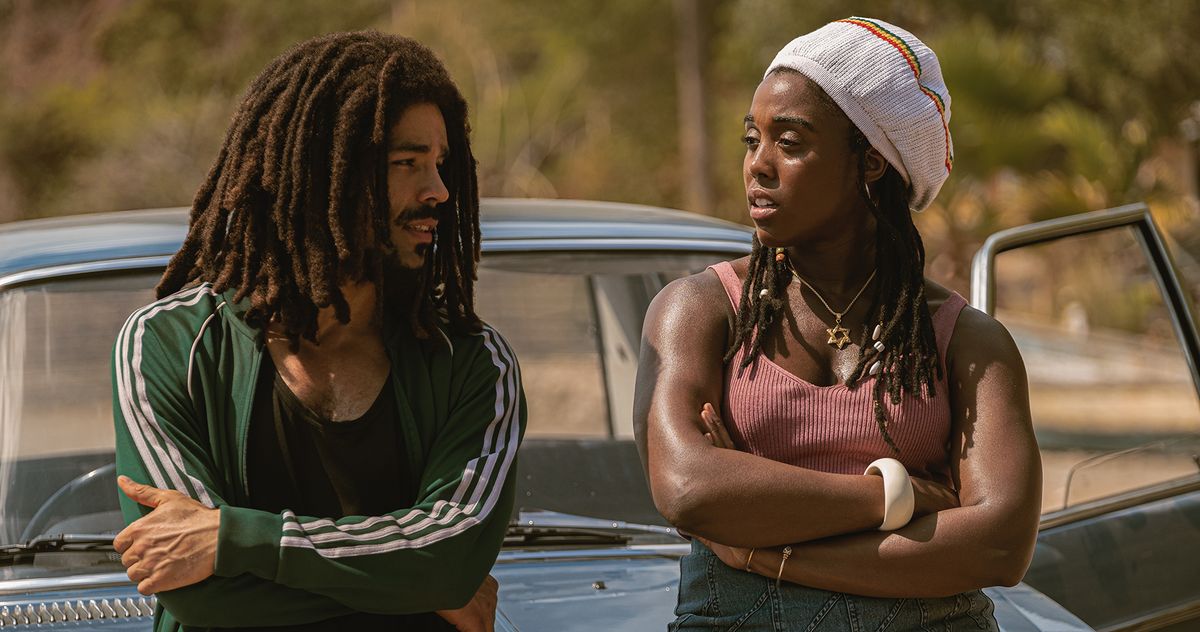
The Hours Is Delicate, Haunting, and So Much More than Nicole Kidman’s Fake Nose
The Hours is the platonic ideal of a prestige piece. A 2002 film based on a great work of literature that was, in turn, inspired by another great work of literature, its story spans three timelines spread across 75 years and wrestles with complex philosophical questions about death, happiness and the meaning of life. It was nominated for nine Academy Awards and features a stacked ensemble cast of A-list performers and supporting scene stealers that few films in the 20 years since its release have managed to equal. Yet, when most people nowadays think of the movie, they remember little more than Nicole Kidman’s nose.
Yes, Kidman, who won a Best Actress Oscar for her performance as Virginia Woolf in the film, wore a prosthetic nose to help transform herself into the incredibly brilliant and infamously homely author. But somehow, despite dozens of men having done similarly in the years before and after this film’s release—Gary Oldman reportedly spent four hours in a make-up chair every day for Darkest Hour, the Winston Churchill biopic that finally netted him an Academy Award just six years later—Kidman’s willingness to dial back her looks was treated as a sad joke, a bit of technical wizardry that secured the actress the sort of major award consideration she obviously couldn’t have earned on her own. “By a nose,” snarked Denzel Washington as he announced her name from the Oscars podium, inviting the assembled audience to laugh at her and her work even as they ostensibly celebrated her achievement. (Has anyone ever done this to a man? Just asking questions!)
Unfortunately, in the months and years that followed The Hours’ release, the film seemed to become synonymous with Kidman’s prosthetic and, as a result, its legacy evolved accordingly. Perhaps a movie so indelibly connected to one of its leading actresses’ appearances—to her willingness to become ugly in the name of her art—would always be treated…if not cruelly, at least dismissively, as though a story that’s so deliberately focused on female interiority, that so unashamedly embraces its literary roots, could never be more than try-hard Oscar bait. (Again, a label that rarely gets attached to movies like the equally prosthetic-heavy Darkest Hour, or the CGI-deaged The Irishman.)
This is a shame for many reasons, not the least of which is that The Hours is fantastic, a delicate, emotionally harrowing story about depression, longing and the specific, bone-deep exhaustion that comes from pretending to be fine when you aren’t. When stories like this are about men, they’re almost always about some form of overt or repressed violence, but here it is emotional pain that takes center stage in a story unapologetically about women’s inner lives, and the ways that they are consistently asked to sacrifice their own happiness for the comfort of others.
Based on Michael Cunningham’s Pulitzer Prize-winning novel of the same name, The Hours is a triptych of stories about three very different women, whose lives are nevertheless connected in ways both literal and thematic. (Fun fact: the original working title for Woolf’s Mrs. Dalloway, which provides the overarching narrative framework for this story, was The Hours.) In 1923, Virginia Woolf (Kidman) is living in quiet exile on doctor’s orders outside London, feverishly writing the book that will become her most famous work and wondering if she is going mad again. Laura Brown (Julianne Moore) is a 1950s Los Angeles housewife whose picture-perfect life is full of quiet domestic desperation and who reads Mrs. Dalloway both as a means of escape and a chance to feel seen. And in 2001 New York City, Clarissa Vaughn (Meryl Streep) is planning a party—for which, yes, she has bought the flowers herself, much like her obvious namesake—to celebrate the literary career of her often insufferable ex-lover and best friend Richard (Ed Harris), who’s dying of AIDS.
Mirroring the novel that serves as a touchpoint in all their lives, their stories are told over the course of a single day, as Virginia, Laura and Clarissa each face an existential moment of crisis. “A woman’s whole life, in a single day,” Woolf intones as the timelines shift. “Just one day, and in that day, her whole life.” Beyond the obvious narrative connections between the plots, Stephen Daldry’s direction makes plain the parallels between them all, intercutting between scenes of his three leads in similar physical positions and allowing specific lines of dialogue to echo from one segment to the next. It’s a masterful audiovisual representation that builds a cohesive whole from three seemingly disparate pieces, a delicate portrait of the tension between repression and expression, oppression and freedom—even life and death.
In the world of The Hours, death is as much a character as any of its leading ladies, and accepting that it is possible to die is part of what gives the hours that are allotted to us meaning. Virginia longs for the excitement of the city, even if it will ultimately kill her. Laura considers whether death might be preferable to the stifling life she’s being asked to live. And Clarissa fears Richard’s rapidly approaching end because she’s defined so much of herself by her relationship to him, even as she’s tried to build a life and family that exists outside of his influence. But while The Hours can often feel quite bleak—the film contains two suicides and references to several other unsuccessful attempts—its story is ultimately an affirmation, a cathartic exhortation to look life in the face and love it for what it is, rather than for what we might wish it were, to claim happiness in the fleeting moments in which it actually occurs instead of waiting for some nebulous future that may never arrive.
That the emotional heft of this story is so frequently reduced to Kidman’s appearance in the broader cultural conversation about it is certainly disappointing if not entirely surprising. After all, 20 years have passed since it was released, and our society isn’t necessarily any more interested in the inner lives of women than it was then. (Though our entertainment has gotten a bit better about it, if only in matters of degree.) But The Hours is a film that rewards repeat viewings, whether it’s through the emotional sweep of its impressive Phillip Glass score or the deft ways that seemingly throwaway scenes (Eileen Atkins in the flower shop! Margo Martindale as the world’s most put-upon babysitter!!) continually reveal hidden layers.
The highest praise I can give The Hours—and the Cunningham book it is based on—is that it made me reconsider my own relationship with and understanding of Mrs. Dalloway, a book I viscerally hated during college English literature, but have come to appreciate over the years since in a way I never would have expected. Here’s hoping that, as The Hours turns 20, filmgoers who once—pardon the pun—turned their noses up at it for whatever reason will rediscover this often ignored gem, one that’s always been about so much more than what you can see on the surface.
Lacy Baugher Milas is the Books Editor at Paste Magazine, but loves nerding out about all sorts of pop culture. You can find her on Twitter @LacyMB.








































![iFi's GO Bar Kensei Dongle DAC Supports K2HD Technology With Some Samurai Swagger [Updated] iFi's GO Bar Kensei Dongle DAC Supports K2HD Technology With Some Samurai Swagger [Updated]](https://i0.wp.com/cdn.ecoustics.com/db0/wblob/17BA35E873D594/33FF/45A11/QTXOLJR4xDKSNMMk2WlTgjaIlvSgcYpeU1xJzUwIoYs/ifi-go-bar-kensei.jpg?w=768&ssl=1)























